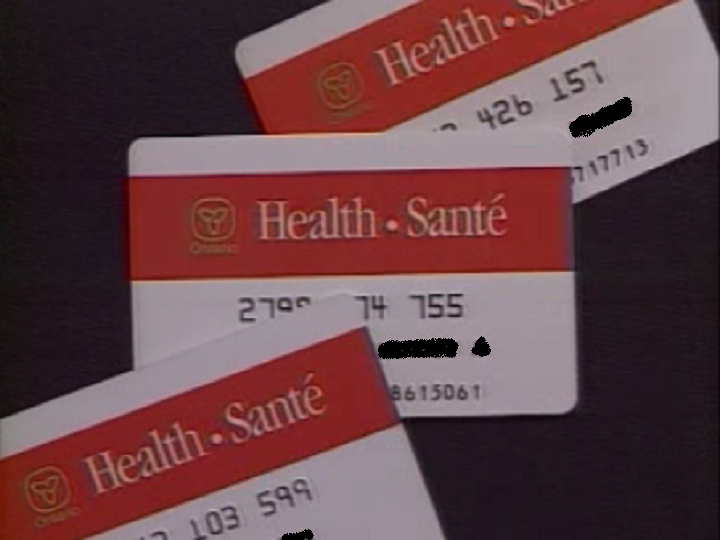TORONTO – More than two decades after Ontario started phasing out its red-and-white health cards, the government is setting a firm end date to cancel all remaining ones.

The province has been gradually removing them from the system and issuing residents more secure photo ID health cards since Bob Rae was premier, but now the Ministry of Health is working with ServiceOntario to set a final day after which red-and-white cards will no longer be accepted.
The specific date hasn’t been set, but it won’t happen overnight, said Health Minister Christine Elliott.
“It has been out there for a very long period of time,” she said. “Some people are still hanging onto their cards, in some part, because nobody has required them to do the conversion. But in order to be responsible stewards of taxpayers’ money, it’s necessary to bring that process to an end.”
It was late 1994 when the then-NDP government announced that due to fraud and misuse, the cards – that were introduced just four years prior – would be phased out over three years.

Get breaking National news
Twenty-five years later, there are still 400,000 in circulation, representing about three per cent of all Ontario health cards, a Ministry of Health spokesman said. Last year, ServiceOntario sent out about 27,000 final notices, telling people to convert to a photo health card or their coverage would be suspended.
“This time, I think we have to send out notices with specific timelines that I’m sure people will respond to,” Elliott said.
When the photo ID cards were first announced, the government estimated the red-and-white cards were being used for $65 million in fraudulent claims a year. At the time, Ontario’s health cards had the least amount of printed information of any province, including only a name, and no expiry date, according to a 2006 auditor general report.
There were about 300,000 more health cards in circulation than there were people in Ontario, the auditor said.
In the years before the photo ID cards were introduced, health officials warned that some cards had fallen into the hands of Americans and other non-residents, with fraudulent use the most prevalent in Ontario’s border communities.
The rate of conversions to photo ID health cards dropped off sharply – by about 45 per cent – when ServiceOntario took over responsibility for it from the Ministry of Health in 2008, the auditor said in a 2013 report.
That year, the Liberal government announced in its budget that it would invest $15 million over three years to expedite conversions and have them all completed by 2018.
At the time, about 800,000 people who still had with red-and-white cards had outdated addresses attached, and 144,000 had no address listed at all, meaning there was no way to determine if those card holders were Ontario residents, the auditor said.







Comments